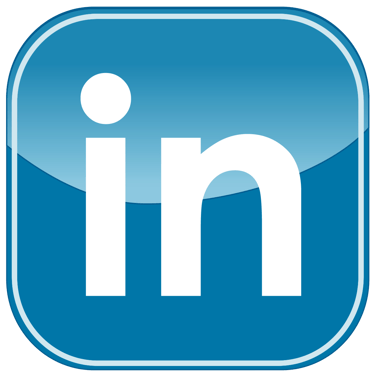Reputation Over Referrals: How Smart Agencies Are Leveraging Digital Trust to Win and Retain Clients
This comprehensive guide examines how healthcare agencies are transitioning from traditional referral networks to strategic digital reputation management for sustainable client acquisition and retention.
11/17/20255 min read


Healthcare agencies are discovering that traditional referral networks, while still valuable, can no longer sustain competitive growth in today's digital-first marketplace. Smart agencies are now building comprehensive digital reputation strategies that create measurable trust, attract higher-quality clients, and significantly improve retention rates.
The Fundamental Shift in Healthcare Client Acquisition
The healthcare industry has experienced a dramatic transformation in how potential clients research and select service providers. According to recent industry analysis, healthcare consumers now conduct extensive online research before making decisions, with digital reputation serving as a primary trust indicator. This shift means agencies can no longer rely solely on word-of-mouth referrals or traditional networking approaches.
Modern healthcare agencies that prioritize reputation management report significantly higher client acquisition rates compared to those using traditional referral-only strategies. The data reveals that agencies with strong digital footprints capture more qualified leads and experience lower client acquisition costs.


Building Digital Trust Through Strategic Content Authority
Healthcare agencies are establishing thought leadership through consistently published, research-backed content that addresses specific industry challenges. This approach goes beyond basic marketing by providing genuine value to potential clients while demonstrating deep industry expertise.
The most successful agencies focus their content strategy on current regulatory changes, emerging technologies like telehealth, and strategic planning considerations that directly impact their target clients' success. This content serves multiple purposes: it attracts potential clients searching for solutions, establishes the agency as a trusted advisor, and provides ongoing value that supports client retention.
Research indicates that healthcare organizations with active thought leadership content see substantially higher engagement rates and improved conversion metrics compared to agencies using traditional marketing approaches.
The Power of Social Proof in Healthcare Decision Making
Digital reputation extends far beyond basic online reviews. Smart healthcare agencies are leveraging comprehensive social proof strategies that include case studies, client testimonials, industry recognition, and peer recommendations across multiple platforms.


The most effective reputation strategies incorporate verified client outcomes and measurable results that potential clients can easily access and verify. This transparency builds immediate credibility and addresses the natural skepticism healthcare decision-makers have when evaluating new service providers.
Healthcare agencies are also discovering that participating in industry publications, speaking at conferences, and contributing to healthcare policy discussions significantly enhances their reputation and attracts higher-value clients. These activities create a compound effect where visibility leads to more opportunities, which generate additional credibility and social proof.
Technical Implementation of Reputation Management Systems
Leading healthcare agencies are implementing sophisticated reputation monitoring and management systems that track brand mentions, sentiment analysis, and competitive positioning across all digital channels. These systems provide real-time insights that enable quick responses to both positive and negative feedback.
The technology stack typically includes social media monitoring tools, review management platforms, and analytics systems that measure reputation impact on business metrics. Studies show that proactive reputation management can improve client retention rates by up to 25% while reducing client acquisition costs.


Agencies are also using these systems to identify potential issues before they escalate, allowing for proactive client communication and problem resolution. This approach prevents small concerns from becoming larger reputation challenges while demonstrating responsive client service.
Measuring ROI and Business Impact
Smart agencies track specific metrics that connect reputation management activities to business outcomes. Key performance indicators include client acquisition cost, lifetime value, retention rates, and revenue per client relationship.
The most sophisticated agencies establish baseline measurements before implementing reputation strategies, then track improvements across multiple timeframes. Research demonstrates that agencies with strong digital reputations command premium pricing and experience lower client churn rates.
Healthcare agencies are particularly focused on metrics that reflect trust and credibility, such as unsolicited referrals from existing clients, inbound inquiries from high-value prospects, and engagement rates on thought leadership content. These indicators provide early signals about reputation effectiveness and future business growth potential.
Integrating Reputation Strategy with Client Retention
The most successful healthcare agencies recognize that reputation building and client retention are interconnected strategies. Satisfied clients become active advocates who contribute to online reviews, provide testimonials, and refer new business opportunities.


Agencies are implementing systematic approaches to client feedback collection and public recognition programs that highlight successful partnerships. This strategy creates a positive feedback loop where excellent service generates public recognition, which attracts better clients and reinforces the agency's market position.
The retention strategy extends to addressing client concerns quickly and transparently, turning potential negative situations into demonstrations of responsive service and commitment to client success. Research shows that agencies handling negative feedback professionally often strengthen client relationships and enhance their overall reputation.
Future-Proofing Digital Trust Strategies
Healthcare agencies are preparing for continued evolution in digital reputation management by investing in emerging technologies and platforms. This includes exploring artificial intelligence tools for sentiment analysis, automated response systems for common inquiries, and predictive analytics for identifying reputation risks.
The most forward-thinking agencies are also developing crisis communication plans that address potential reputation challenges before they occur. These plans include clear protocols for responding to negative events, maintaining communication with key stakeholders, and preserving long-term client relationships during difficult periods.


As healthcare continues evolving, agencies with strong digital reputations will have significant advantages in attracting top talent, securing partnership opportunities, and maintaining competitive positioning. The investment in reputation management systems and strategies provides both immediate benefits and long-term competitive protection.
Actionable Implementation Steps
Healthcare agencies beginning their reputation transformation should start with a comprehensive audit of their current digital presence, including search results, social media profiles, and existing client feedback systems. This baseline assessment identifies immediate improvement opportunities and establishes measurement benchmarks.
The next step involves developing a content calendar that addresses client concerns, industry trends, and regulatory updates that impact their target market. Consistency in publishing valuable content builds credibility over time and creates multiple touchpoints for potential clients to discover the agency's expertise.
Agencies should also implement systematic feedback collection processes that encourage satisfied clients to share their experiences publicly while providing private channels for addressing any concerns. This balanced approach maximizes positive reputation impact while minimizing potential negative exposure.
Conclusion
The shift from referral-dependent growth to reputation-driven client acquisition represents a fundamental change in healthcare agency success strategies. Agencies that embrace comprehensive digital trust building, implement systematic reputation management, and measure business impact position themselves for sustainable competitive advantages.
The investment in reputation strategy pays dividends through improved client quality, increased retention rates, and premium pricing opportunities. As the healthcare industry continues evolving, agencies with strong digital reputations will capture disproportionate market share and achieve superior growth outcomes.
Unlock Your 30-Minute Agency Succession Review
Maybe you're ready to expand your reach, or perhaps it's time to consider your legacy and the future of your business. Either way, it all begins with a conversation. Schedule a confidential, no-obligation call to explore what the future might hold for you and your business.
Complete the form, and we'll reach out for a chat...


© 2025 SENATE HEALTHCARE LLC.
ALL RIGHTS RESERVED


